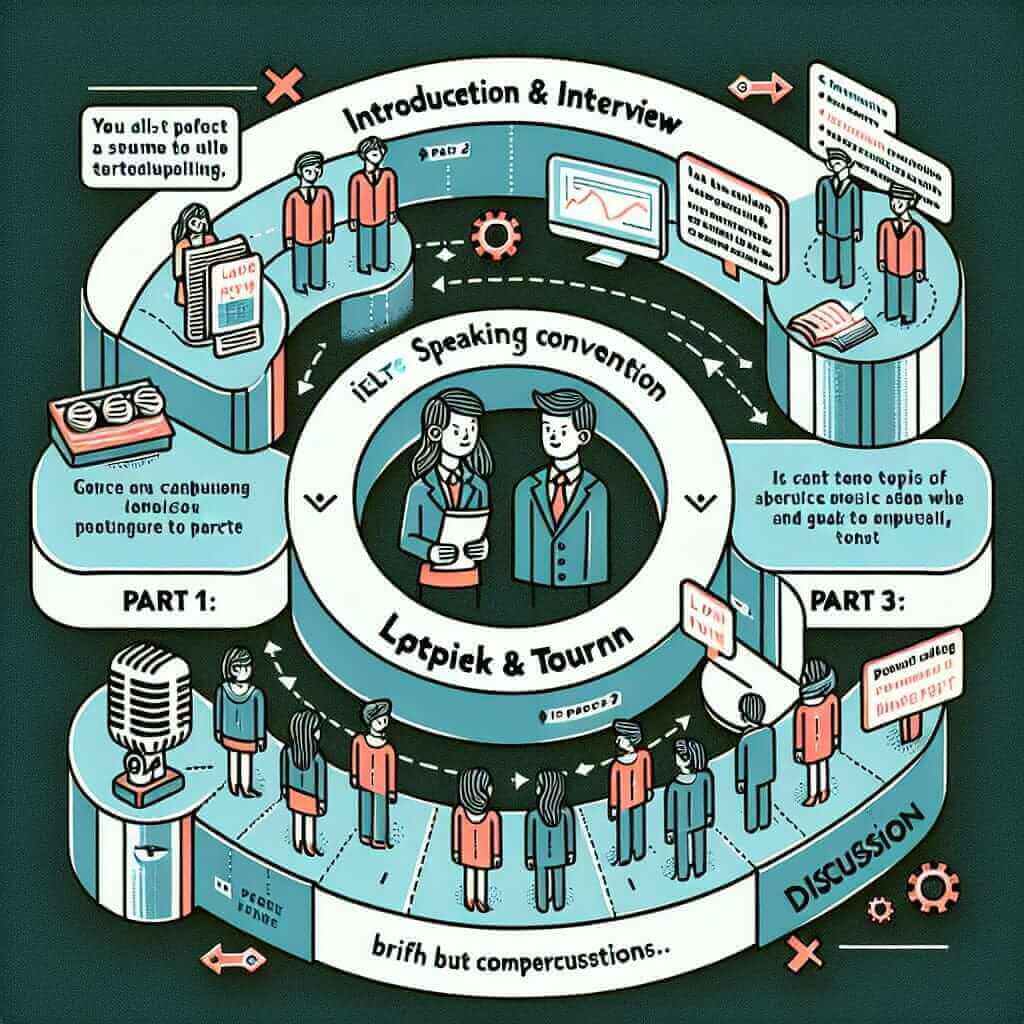Are you aiming to achieve a high band score in the IELTS Speaking test? This guide will delve into essential techniques to enhance your performance and secure a top score. Understanding the nuances of the IELTS Speaking test, practicing regularly, and fine-tuning your English language skills are indispensable steps. Let’s explore these techniques in detail.
Understanding the IELTS Speaking Test
The IELTS Speaking test is divided into three parts:
Part 1: Introduction and Interview
This section involves a brief, informal conversation where the examiner will ask questions about familiar topics like your home, family, work, studies, and interests.
Part 2: Long Turn
In this segment, you’ll receive a task card with a topic and be expected to speak about it for up to 2 minutes. After that, the examiner may ask one or two questions related to your topic.
Part 3: Discussion
Here, the discussion revolves around broader issues or abstract ideas related to the topic discussed in Part 2. This section assesses your ability to express and justify opinions, analyze, discuss, and speculate about issues.
Techniques for High Scores
1. Be Fluent and Coherent
Fluency and coherence are key components that the examiner looks for. Ensure your speech flows naturally without too many pauses or fillers like “um,” “uh,” or “you know.”
Example:
Instead of saying, “Um, I think, uh, people should, um, exercise because it is, you know, good for health,” try: “I believe regular exercise is essential for maintaining good health.”
2. Use a Range of Vocabulary
Showcase your lexical resource by using a variety of words and phrases. Avoid repetition and simple words.
Example:
If the topic is about hobbies, instead of repeatedly saying “I like reading,” you could say, “I enjoy immersing myself in different genres of literature” or “I find solace in perusing historical novels.”
3. Apply Grammatical Range and Accuracy
Use complex sentences and a variety of grammatical structures accurately. This demonstrates your command of the English language.
Example:
Simple: “I like cooking. It is fun.”
Complex: “I enjoy cooking because it allows me to experiment with different ingredients and creates a sense of accomplishment when the dish turns out well.”
4. Pronunciation Matters
Clear and accurate pronunciation is crucial. Pay attention to the intonation, stress, and rhythm of your speech.
Example:
Practice pronouncing difficult words correctly and ensure your speech is understandable. For instance, practice the correct pronunciation of words like “comfortable” (/ˈkʌmf.tə.bəl/) and “espresso” (/esˈpres.oʊ/).
5. Extend Your Answers
Avoid giving short, one-word answers. Extend your responses with additional details and explanations.
Example:
Question: “Do you like traveling?”
Short answer: “Yes.”
Extended answer: “Yes, I love traveling because it gives me the chance to explore new cultures, meet new people, and try different cuisines.”

Common Mistakes to Avoid
1. Overloading with Complex Vocabulary
While it’s important to use a wide range of vocabulary, avoid using complex words incorrectly. Misuse can lead to confusion and negatively impact your score.
2. Speaking Too Fast
Speaking rapidly can make it difficult for the examiner to understand you. Maintain a steady pace.
3. Memorized Responses
Memorizing answers can make your speech sound unnatural. The examiners are skilled at detecting rote-learned responses.
4. Lack of Practice
Without regular practice, it’s hard to improve fluency and coherence. Engage in daily practice sessions with a partner or use language learning apps.
Practice Makes Perfect
1. Mock Tests
Take regular mock tests to familiarize yourself with the format and timing of the IELTS Speaking test.
2. Record Yourself
Record your responses and listen to them. Identify areas where you can improve your fluency, vocabulary, and pronunciation.
3. Seek Feedback
Join study groups or language classes where you can receive constructive feedback from peers and instructors.
4. Use Authentic Materials
Read articles, watch videos, and listen to podcasts in English to immerse yourself in the language and pick up new vocabulary and expressions.
5. Practice Speaking on Various Topics
Try discussing a wide range of topics to prepare for unexpected questions in the exam.
Example Practice Topics:
- Technology and its impact on society.
- Environmental conservation and sustainability.
- Education systems and their differences globally.
- The importance of cultural exchange.
Conclusion
Achieving a high score in the IELTS Speaking test requires strategic preparation and practice. By focusing on fluency, coherence, vocabulary, grammar, and pronunciation, you can enhance your speaking skills significantly. Remember, consistent practice and seeking feedback are crucial. Engage in regular speaking exercises, extend your answers, avoid common mistakes, and stay updated with various topics. With these techniques, you’ll be well-prepared to ace your IELTS Speaking test.
Have questions or want to share your preparation tips? Leave a comment or explore more resources on our website!